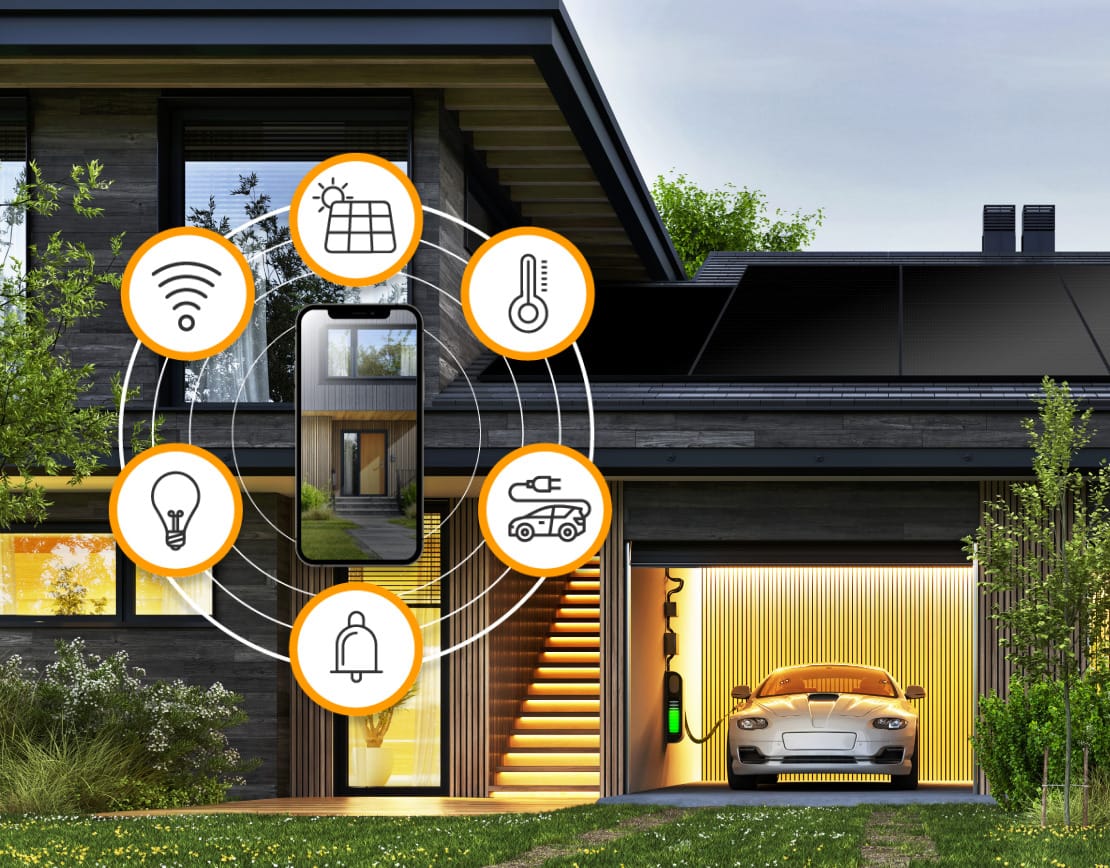Did you know that the U.S. solar energy capacity has soared in recent years, topping 100 gigawatts in 2020? Solar energy is particularly popular in California, where it accounts for more than 15 percent of the in-state energy generation.
While you may think of solar energy in the form of large generation facilities, this energy is also harnessed through installing solar panels on your home. Not all solar panels are created equal and you should consider several factors, including solar panel output. Read on to learn more about solar panel output and how to determine if they are right for you.
What Is Solar Panel Output?
Solar panel output is the energy they generate. Their ratings are based on the energy wattage they produce. Residential high output solar panels will produce 400 watts of power.
Understanding How Output Relates To Your Energy Bill
Your home's energy consumption is measured in kilowatt hours (kWh). Translating the solar panel power output from watts to kWh is a simple one-step calculation. You just need two items: the solar panel output and the average hours of sunlight per day in your area.
The average hours of sunlight are available in many online resources. Once you have this, an example of the calculation is as follows:
Assuming you have a panel with a 400-watt output and 6 hours of sunlight per day: (400 x 6)/1000 = 2.4 kWh per day. When multiplied by 365 days, this equals 876 kWh per year.
What Factors Should I Consider With Solar Panel Output?
Now that you know what solar panel output is and how it relates to your energy bill, you should consider several other factors before making a purchase. These include:
Your Residential Usage
By reviewing your energy bills, you can determine the kWh that your residence uses annually. This value is essential when considering the other factors.
Solar Panel Type and Quantity
Once you have the prospective solar panel types and their ratings, you can determine how many you need to buy to meet your energy consumption needs. Referring to the previous example, you would need 10 of the 400-watt panels if your annual household used 8,500 kWh a year.
This is where you would need to compare panels and find the best value. For instance, panels with a lower power output are less expensive but you will need to buy more of them to meet your demand.
Your Environmental Footprint
Based on your residential usage and the upfront costs, you need to determine if you want to simply reduce your footprint or go completely off the grid. If you choose to go off the energy grid, the upfront cost is more but your environmental impact will be less.
Home Energy Efficiency
You may also consider making changes in your home that reduce energy usage and may lower the number of solar panels you need to buy. Some considerations include:
- Energy-efficient appliances
- LED light bulbs
- Utilizing natural light
- Reduce hot water usage
- Unplug devices when they are not in use
Is There a Reduction In Solar Panel Output Over Time?
When making a purchase, you should consider that solar panels do not last forever. Most models will last between 20 and 30 years but the operational capabilities do change. Solar panel output does decrease over time, with an annual drop in efficiency of 0.5 percent.
The climate is a contributing factor to degradation, as extreme weather and temperatures can cause physical damage to the panels. Solar panels installed on rooftops rather than platforms on the ground will experience harsher conditions. This is due to the lack of airflow under the panels.
While degradation is inevitable, there are steps that you can take to help minimize it, such as regular cleaning and maintenance. Although you could perform these tasks yourself, most solar panel installation companies offer these services.
Finally, you should check the warranty available for any prospective purchase. Typical solar panel warranties will last 20-30 years, which is the lifespan of most current models. However, you should review it to make sure the coverage extends to items like storm damage.
Financial Benefits To Solar Panels
Besides reducing your energy consumption, there are financial incentives to installing solar panels. Besides a federal benefit that is available for everyone, your state may offer other incentives as well.
Federal Tax Credit
The federal government offers an income tax credit for the installation of solar panels. This tax credit is 26 percent of the cost and it applies to all systems installed up to 2024. The panels must be placed on either your primary or secondary residence.
The costs applied toward the incentive are more than just the panels. They include:
- Contractor labor costs
- Storage devices unique to the panels
- Sales tax
This tax incentive may be affected by the state tax benefits if you are eligible.
State Incentives
More than 30 states offer incentives to their residents. Some offer state income tax credits similar to the federal benefit. Other states offer buy-back options, which allow you to sell excess power back to the state grid in exchange for credits.
Individual state utility companies may also offer incentives, including rebates and buy-backs. Check with your state to see what benefits you may be eligible for.
It's Time For Solar Power
Now that you know what solar panel output is, the factors associated with it, and how it relates to your electric bill, what are you waiting for? You might even be eligible for multiple incentives that can speed up your return on the investment.
Contact us to learn more about solar panels and the services we provide.



